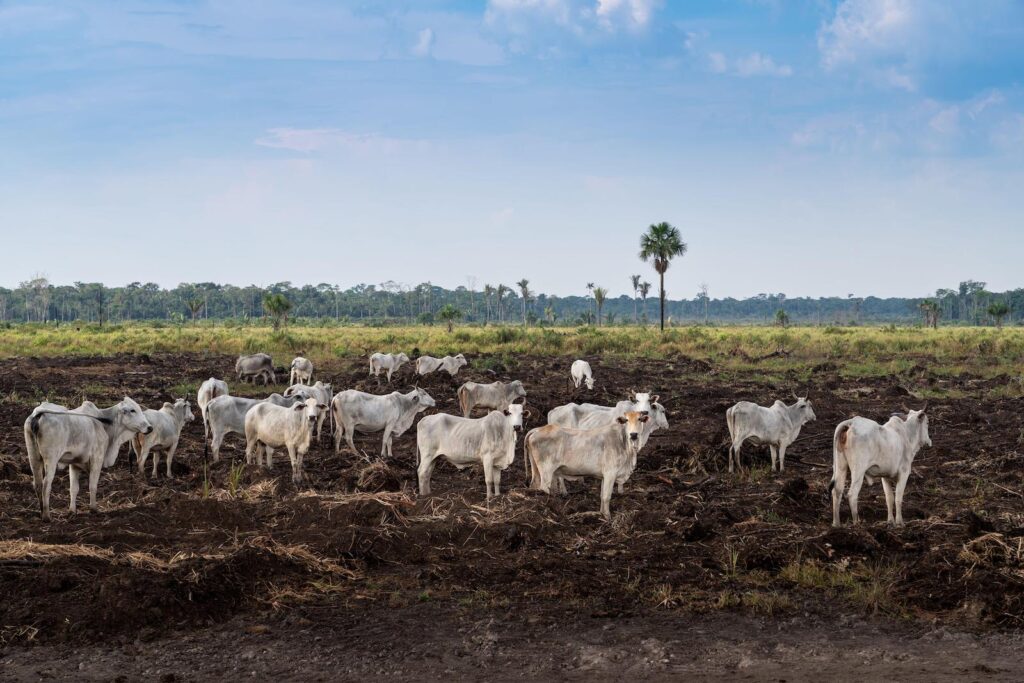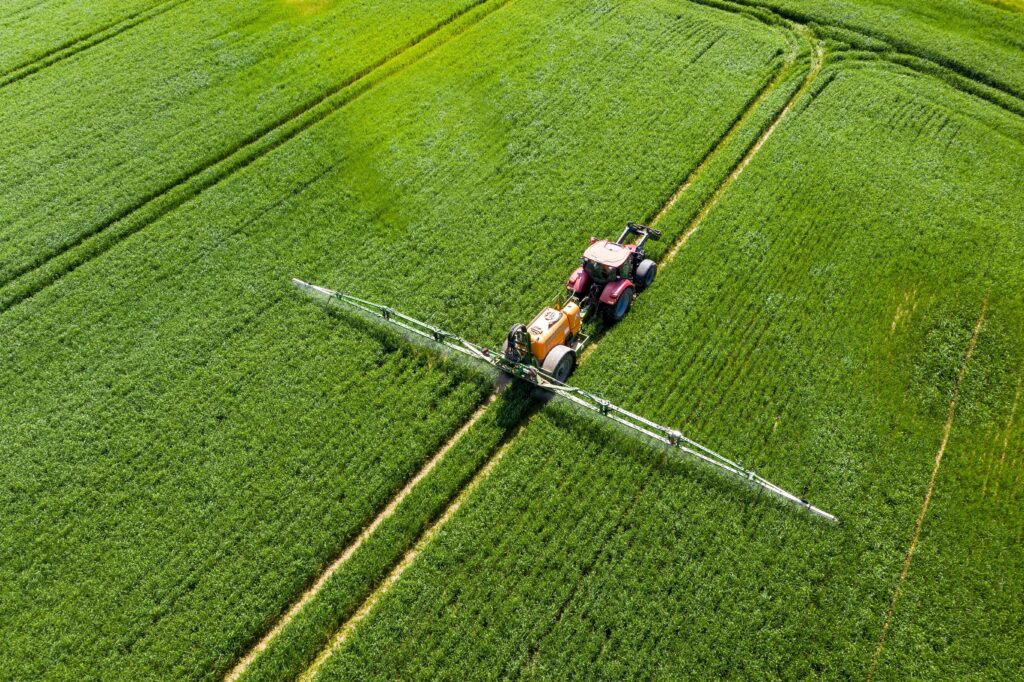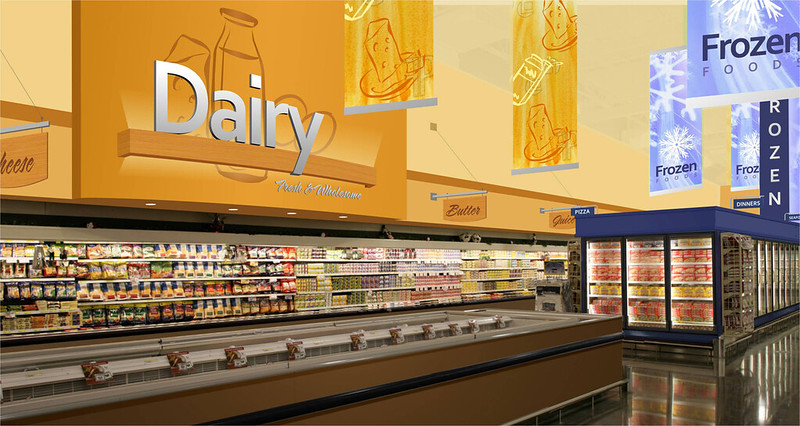This factsheet is part of DeSmog’s Agribusiness Database project. For more information, read our full investigation on the pesticide industry’s approach to climate action.
As the impacts of climate change are increasingly felt around the world, big agribusinesses have been marketing a strategy to allow farmers to keep growing crops in an increasingly uncertain world: “digital” or “precision” agriculture.
Through using high-tech techniques — which are heavily reliant on big data and new equipment to inform how to plant, fertilize and harvest— farmers can stay one step ahead of the effects of rising global temperatures and extreme weather, companies argue.
But critics claim they are unlikely to be sufficiently effective and come with other problems.
The profiles in our Agribusiness Database provide a summary of the ways in which companies are promoting digital and precision agriculture as climate-friendly. Here is a summary of some of the main criticisms of digital and precision agriculture as a climate solution.
Precision agriculture is over-hyped and a climate adaptation rather than mitigation strategy
The level of emphasis on precision agriculture has attracted concern from industry insiders. “I think there is a certain word that can accurately describe much of the precision ag and/or ag tech industry right now,” Nathan Faleide, who worked in precision agriculture for 20 years, wrote in a July 2017 op-ed for Precision Ag. “That is hype. Many are overhyping the possibilities and what can be done or even how it will save the industry and usher in ag 2.0.”
When faced with a challenge as large as halting climate change, campaigners are unconvinced precision agriculture is a serious solution. As environmental NGO Friends of the Earth puts it: “Faced with global climate and biodiversity emergencies, better ‘optimization’ of existing production processes cannot possibly go far enough to meet the challenges we face.”
Precision agriculture is also mainly a way for farmers to adapt to the impacts of climate change, rather than preventing it. As such, precision agriculture “over-emphasizes technological fixes to adapt to climate change, rather than meaningful regulation or changes in agricultural practices to control greenhouse gas emissions”, critics told InsideClimate News.
Precision agriculture means Big Ag retains control of damaging farming practices
Big agrichem companies currently generate profit by farmers using lots of their products (be it seeds or pesticides). They have yet to work out how to get paid to encourage farmers to use less of these in the interests of preserving the environment or combatting climate change.
As a report by The Konkurrenz Group points out, when analysing the 2018 merger between Monsanto and Bayer, a technological race could therefore occur “to increase the farmers’ dependence on the Big Four’s digital platforms, where based on the data collected, farmers will rely more (rather than less) on the Big Four’s traits, seeds, and pesticides for their increasingly automated precision farming”.
Digital Agriculture creates a lot of at-risk data
The amount of data generated by digital and precision agriculture tools is also of some concern, as it is unclear who will own that data, or what it could be used for.
As a report from the ETC group puts it, “digital farming data and analytics (farm machinery, seeds, fertilizers, pesticides, crop insurance and more) pave the way for unprecedented corporate collusion and control over the first links in the industrial food chain”. This could lead to a bad deal for farmers, and big companies using the data to promote climate-damaging practices.
The data could also be a target for hackers. The Department of Homeland Security published a guide titled ‘Threats to Precision Agriculture’ that discussed the data vulnerabilities and risks of cyber attacks associated with various technologies in 2018.
Digital and precision agriculture tools are expensive
On a farm using precision agriculture techniques, you might find sensors collecting data about soil moisture, GPS-guided tractors, robots that can thin crops, and drones that can spray pesticides. These tools don’t come cheap.
A UK government report on “the future for food, farming and the environment in a Green Brexit”, for instance, acknowledged that one barrier to farmers using digital farming methods could be that “investments in buildings, innovation or new equipment are prohibitively expensive”.
And it’s not clear that they’re adequate to fully address the sorts of long-running climatic problems like drought that can plague farms for years or decades.
Subscribe to our newsletter
Stay up to date with DeSmog news and alerts






